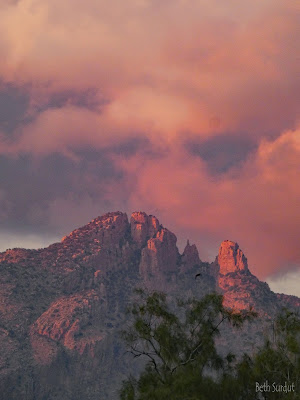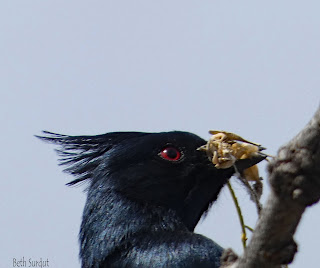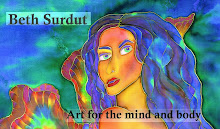In 2016, I conducted an interview on NPR with naturalist and
author Sy Montgomery about the
consciousness and emotions of animals. In September 2019, her engaging memoir, How to Be A Good Creature, was published, and our conversation continues.
In 2012, deeply involved in
researching, drawing, and collecting true first-person encounters with ravens,
I was lured from Santa Fe to Tucson by a perfect combination--a book festival,
Sy Montgomery, and, in particular, her book of essays, Birdology: Adventures
with Hip Hop Parrots, Cantankerous Cassowaries, Crabby Crows, Peripatetic
Pigeons, Hens, Hawks, and Hummingbirds.
We met. I told Sy about my ravens,
and a friendship was hatched.
In 2013, I returned to Tucson to
accept the Tucson Festival of Books Literary Award for Non-Fiction for my
illustrated book-in-progress, Listening to Raven. After calling out the
news to the ravens around my studio, I called Sy, who was working on a book
about octopuses – not octopi.
Sy Montgomery Interview
Conducted & transcribed by Beth
Surdut
contains additional content not
heard in radio interview
Beth: Sy Montgomery. It’s so good to talk to you today. You know
you really are a bold one. Your newest book, Soul of an Octopus, I
looked at that and I thought, you were writing about animal cognition and
emotion when even respected animal behaviorists— Jane Goodall, for
instance—wasn’t publishing their own ideas because the scientific community
wouldn’t accept them. Would you have been able to title a book Soul of an
Octopus when you first started writing about animals?
Sy: No, absolutely not. You are so right, Beth. I think now,
though, the world is ready to accept that animals have emotions and thoughts
and feelings and that we are not alone in the universe in having consciousness.
In fact, as you know, in 2012, the consortium of neuro-anatomists and
neuroscientists and other scientists got together in Cambridge, in England, to
write and sign the Cambridge Declaration on Consciousness saying that all
mammals and birds, and certainly some invertebrates-- they mention octopuses
specifically-- have what they called the neural substrate necessary to generate
consciousness.
So what you and I have known, and
many of your listeners have known for decades, and many humans have known for
centuries, now is being recognized by scientists and philosophers who weren’t
ready to acknowledge that even just a few decades ago.
Beth: Are you familiar with the quote from Thoreau—so this would
be in the 1800s-- Thoreau said, “Surely the most important part of an animal is
its anima, its vital spirit, on which is based its character and all the
peculiarities by which it concerns us, yet most scientific books which treat of
animals leave this out altogether.”
Sy: Wow, that’s a great quote. That is a fabulous quote. Well,
he knew stuff. Thoreau knew stuff. That’s for sure. That’s the thing, you know.
You, too, you’re an excellent
observer of the natural world. To those of us who watch and listen, these
truths are revealed to us. And I think you have to almost purposely blinder
yourself to the thoughts and feelings of animals to deny that they exist. And
anyone who’s had a pet dog or a pet cat can see this, can testify to it. It’s a
little harder to see in an octopus, maybe, because we don’t get see octopuses
as much as we might want to. But of you look, it’s there.
Beth: Well, I look at all the animals you’ve written about-- the
golden moon bear, the tree kangaroo, the kakapo, the tapirs, snow leopards.
Those are either exotic or cuddly looking.
And then there are the ones you have
to respect—the raptors, the falcons, the Harris’ hawks, the man-eating tigers.
But you’ve got this other group of
beautiful interesting creatures that are so different from humans that some
people are scared of them, some people loathe them—tarantula, snake, and
octopus---Three hearts! Suckers!
Sy: Ayup, and tasting with your skin. And being able to slip
through a tiny opening because you haven’t got any bones at all, and a brain
that wraps around your throat, and arms that, if severed, can go off and do
things including change color and even hunt prey—this can freak some people
out.
But how many people watched ET and
loved that alien. Loved that alien for both the way it could connect with its
children friends, but also for the ways it was so different from humans. And
here we have, right on our planet these alien creatures, but they live in our
world. And to me that is so exciting, it’s such a privilege and a lot of these
critters…I mean, you’re not necessarily going to bump into an octopus if you
don’t live near an ocean, and particularly some of the deep sea species of
octopus.
But spiders, even if you don’t have
a tarantula, all of us can meet a spider. If your like me and don’t vacuum too
much, there’s tons of them right in your basement. But these are alien
creatures, too, have what we would consider super powers if they belonged to a
mammal.
They can shed their skin; they can
taste with their feet. Many spiders, if they hurt their leg, they can pull it
off and eat it and grow a new one. Wouldn’t that be great if we could do that?
Being able to pull this amazing
substance, stronger than steel that they can pull out of their bodies and build
webs with this. Wow. These are incredible creatures, and yet they’re amazingly
common.
And we should just walk around this
world gobsmacked, I think, realizing all these complex lives going on around
us. Animals with powers that we only dream of, and yet all of them are thinking
and feeling much as we do, and all of them love their lives as we do.
Beth: I never thought that I would cry over the story of an
octopus, but I did, I did.
Sy: Oh, Beth.
Beth: When one of the girls in your book thought that she had
viable eggs and tended them…could you talk about what happens to an octopus
when they have eggs.
Sy: Well, octopuses lay eggs at the end of their lives, and
they do it in darkness, no one can really see this happen, but we would come in
and day after day there would just be more and more eggs.
Their eggs are the size of a grain
of rice each, and they’re hung almost like clusters of grapes which they glue
to the ceiling and the walls of their lair.
And from the moment the female
octopus starts laying, until the time she takes her dying breath of water, she
is completely devoted to these eggs. She will never leave her lair. She will
never leave her eggs. She will not go hunting for food and sometimes even if
you hand her food she won’t accept it, because her job, her whole raison
d’etre, now, is to protect and clean and fluff and tend these eggs.
And when Octavia laid eggs, it was a
bittersweet moment for all of us at the aquarium because we had enjoyed
interacting with her. She knew who we were. She would look us in the eye and
come over changing color with emotion, with excitement. She’d change red, she’d
be so excited to see us. And greet us and put her suckers on us and let us pet
her and we would play with her.
But once she laid those eggs, never
again would she want to do that, because this was far more important. So we
would see her fluffing the eggs, cleaning the eggs with her suckers, using her
siphon to blow water across them to keep them clean.
Protecting them from, even though
there weren’t really any other predators in her tank, there was always a chance
that the sunflower sea star might come over and want to eat some of her eggs,
so she was guarding the. She was the most devoted mother.
And there were times that people
would come by and look at the exhibit and the octopus wasn’t moving much and
they would be like “oh, well, that’s boring.”
But then you’d point out, “No,
that’s a mama octopus and look, here’s her eggs,” and then people would be
fascinated.
And there were a group of teenage
girls who I’ll never forget, who walked by her exhibit and one of the kids
said, “Eeeuw, octopus-- gross. Oo, I bet it feels icky to touch it.”
And I said to these three girls,
“But look, it’s a mama octopus and here’s the eggs” and instantly these girls
changed their minds. Instantly, they were like “oh, how sweet” and they wanted
to know more about her.
And after we’d talked for a little
while and they stood in awe watching her tend to her hundred thousand eggs.
And when they left, one of girls
said to me, “You take care of that little mama.”
And this was somebody they’d found
repulsive just minutes before.
Beth: It seems that humans tend to gravitate towards animals that
act like humans. I say that in quotes. I think that you and I both have an
interest in animals that act like whoever they are, not mirrors of us. There
are animals, that, like an octopus or a snake, that aren’t mirrors of us. How
do you go about choosing the animals that you write about?
Sy: Well sometimes they choose me, and sometimes it’s a
very careful choice.
My first book was an homage to my
heroines--Jane Goodall, Dian Fossey and Birute Galdikas. And that book was
about their relationship with their study animals. So, writing about those
great apes was a great way for me to start my career writing about the minds of
other animals because you know, we’re so closely related to a chimp, you can
get a blood transfusion from a chimp. You look into the face of an orangutan
and there’s that guy that took you to the prom in junior high. (Beth: laughter)
They’re very much like us. But as interested as I am to find the similarities
between us and other creatures, like you, I think I’m more fascinated by the
differences.
Because this is what stretches our
imagination. And also stretches the limits of our compassion. I mean, it makes
us more compassionate to imagine, and conceive of and respect and care for
other minds, minds that aren’t like our own. And that’s what really fascinates
me.
I mean, Henry Beston was saying of
animals in his wonderful book, The Outermost House, “You know, they are
not underlings, they’re not brethren, they are other nations.”
They’re living by senses that we’ve
lost or never achieved.
They can hear voices that we can’t.
And this is totally true.
Animals have powers we don’t have:
birds can see infrared light; um, octopuses can taste with their skin; um,
spiders can shed their exoskeleton, which is more than just shedding your skin,
it’s actually shedding your skeleton.
Um, animals have so many senses that
we don’t and they’re able probe our world and know our world and know the truth
of our world in a way that we can’t. And I love that.
So how do I pick the next critter to
write about.
Sometimes it’s that lucky thing that
you’re giving a talk on pink dolphins and you happen to meet the person who
studies the tree kangaroos in Papua, New Guinea and that did really happen. And
that’s how I ended up writing about tree kangaroos in Papua, New Guinea.
You’ll be in the Amazon writing
about pink dolphins and you’ll meet the guy who eventually leads you to the
golden moon bears.
And other times, I’ve made a
deliberate choice and that was the case with octopus. I made a deliberate
choice in that point in my career, feeling I’ve written mostly about vertebrate
animals. Some of whom, can speak, like the birds, in perfect English to us.
But most of animate creation, most
of animal life on our planet is invertebrate. And most life on our planet lives
in the sea.
So I felt it like it was time for me
to try to write about a marine invertebrate and write about its mind.
And that was what brought me, on
that fateful day in March 2011, to the New England Aquarium where a keeper
opened the tank that contained Athena, my first octopus.
And she reached for me from the
water and I reached for her from the air and that changed my life forever and
launched me on this book.





















































